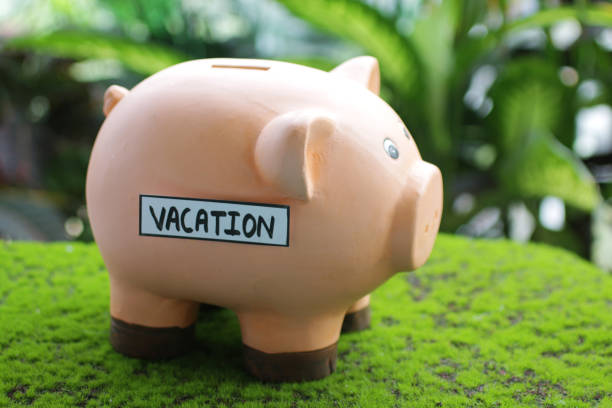
Energy prices seem to have crescendoed and taken a toll on people’s budgets. Though the government has come forward to help people stay afloat during the economic crisis, this will last only until March 2023, and then the support will aim only at the disabled and retired.
This is an appreciative move by the government. After all, something is better than nothing, but it is not enough. Soon the government should clamp down on the rising inflation. Unfortunately, no light at the end of the tunnel.
With stagnant wages and uncontrollably rising prices of fuel and gas pushing the prices of other commodities, the living cost in the UK has become very high. Even those people who had managed to stay on top of their expenses are in the red.
People are looking to get away from the current deplorable financial conditions. Whether it is a sunny beach or something closer to your home, a holiday loan could be an option you can consider if you do not have enough savings.
What is a holiday loan?
A holiday loan is a personal loan taken out to fund your holiday expenses. You will be required to pay down the debt in fixed monthly instalments based on the repayment term. If the money is too small, a lender may ask you to repay it in a lump sum.
If you need a larger amount of money, you will pay down the debt over a couple of months. A short term holiday loan is not a specific type of loan. It is a personal loan that you can use for any purpose, including a vacation.
As these are unsecured loans, interest rates will be slightly higher. At the time of borrowing money, it is a must to analyse whether you can afford to pay back the debt.
How much money can you get when applying for a holiday loan?
It is hard to tell straightaway how much money you can get from a lender through a holiday loan. It depends on a lender how much they are comfortable with loaning you money. Lenders will scrutinise your financial condition to see if you can afford to pay back the debt.
However, just your current income is not enough for a lender to decide if you are the right candidate. Credit history, past payment records, and current debt level are also taken into account to arrive at a conclusion.
The size of these loans may vary between £1,000 and £10,000. Most of the time, the repayment length of these loans would not be more than two to three years. A lender could be a bit reluctant even if you prove your affordability to borrow a specific amount of money.
These loans are not secured, so the risk of loaning you money is too high. If you apply for these loans when you have a bad credit rating, a lender will be a bit stricter about giving the nod. The loan amount could be less than you demanded if your credit report is not stellar.
Holiday loans for bad credit could be more expensive for you even if you borrow a small amount of money. These loans do not require collateral and a guarantor, so the risk on the part of the lender is too high. To mitigate the risk, they will charge a higher interest rate.
How does a holiday loan work?
If you plan to take out a holiday loan, the first thing you should be clear about is how much you need to borrow. It is vital to do some research to find out a loan that works for you and that you can afford to pay back.
Each lender charges different interest rates. Make sure that you are eligible to qualify for a deal with the least possible interest rates. Some lenders may charge monthly fees, while others do not charge them. Contact lenders and ask them about the fee structure.
When you apply for small holiday loans, you will have to provide specific details about your finances. A lender needs it to assess if you can actually afford to pay back the debt without compromising your other monthly expenses.
The lender will look at your credit file to decide what interest rate should be charged. The better the score, the lower the interest rate, and vice-versa. Note that this will leave hard search prints on your credit file even if your loan is turned down.
Therefore, it is suggested that you should check your affordability using an online calculator. You will get an idea of how much it can cost you. The actual cost would be more than that. You should apply for these loans only when you are sure that you can bear this additional expense along with your other recurring expenses.
What if your holiday is cancelled?
If your vacation is called off, you are still supposed to pay back the debt. Once you have got the money in your bank account, you cannot just back out. You will continue to make payments as agreed.
However, if you want to pay back the whole money at once, a lender will charge early repayment fees. It may cover half of the interest you would pay down if you kept making payments as per the schedule.
Evaluate your financial condition carefully before paying back the whole debt before the due date. It does not make sense at all if you are to borrow for your other expenses after settling your holiday loans.
To sum up
If you are looking to take out guaranteed holiday loans, you must analyse your affordability. These loans could be expensive regardless of your credit history. If you can put off your vacation plan, you should, and in the interim, stash away money for that.
If you are borrowing a large amount of a loan, you may have to pay back the debt even after the vacation is over. Think carefully before applying for these loans.

Jessica Rodz is the Senior Content Writer at Cashfacts. She has a long career in the field of content writing and editing. Jessica has the expertise in the UK lending marketplace where she has worked with 7 different lending organisations and acquired many responsibilities from preparing loan deals and writing blogs for their websites.
At Cashfacts, Jessica is managing a team of experienced loan experts and doing a major contribution in guiding the loan seekers via well-researched blogs. She has done graduation in Business (Finance) and now currently doing research papers on the UK financial sector.





